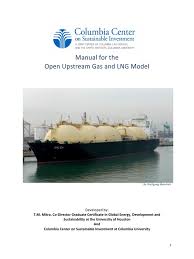The Columbia Center on Sustainable Investment (CCSI), a joint center of Columbia Law School and Columbia Climate School at Columbia University, works to strengthen the sustainable development potential of international investment, and to ensure that international investment is mutually beneficial for investors and the citizens of recipient countries. We envision a world in which international investment contributes to, and does not undermine, sustainable development.
We develop and disseminate practical approaches to maximize the benefits of international investment for sustainable development—and to minimize its harms—by conducting rigorous research, providing policy analysis and advisory services, offering educational programs, developing tools and resources, and fostering multi-stakeholder dialogue and knowledge-sharing.
We integrate legal, economic, and policy expertise, and approach sustainable investment holistically, bridging diverse disciplines, including investment law, natural resource management, human rights law, economics, political economy, finance, and climate change policy. One of our great strengths lies in having knowledgeable perspective across the range of stakeholders, tools, policies, and practices that shape investment flows and outcomes. This allows us to work across communities of practice and with different stakeholder groups, and to provide insight and solutions at the intersections of these often-siloed areas relevant to sustainable investment.
Resources
Displaying 26 - 30 of 41Manual for the Open Upstream Gas and LNG Model
This manual has been developed for training purposes. It models the gas value chain from the upstream project to the use of gas under the form of LPG, LNG or as feedstock for local industrial or power generation uses. It allows users to assess different LNG structures that can be considered when producing LNG (see section 2 for an explanation of each structure). It provides various fiscal regime options for the upstream and mid-stream sectors to understand the impacts of changes on the government take and the private sector returns.
MECHANISMS FOR CONSULTATION AND FREE, PRIOR AND INFORMED CONSENT IN THE NEGOTIATION OF INVESTMENT CONTRACTS
This paper provides guidance on how to integrate consultation and FPIC principles into investor-state contract negotiations to actively involve project-affected communities and better safeguard their land rights and human rights. It proposes various options that may be appropriate, depending on the local context and the community’s resources and decision-making structures.
Briefing Note: A Collaborative Approach to Human Rights Impact Assessments
This briefing note, co-authored with the Danish Institute for Human Rights and the Sciences Po Law School Clinic, outlines a new approach to conducting human rights impact assessments (HRIAs) of business operations or projects, which brings together project-affected people, the company, and other stakeholders to jointly design and implement an assessment.
Briefing Note: A Collaborative Approach to Human Rights Impact Assessments
This briefing note, co-authored with the Danish Institute for Human Rights and the Sciences Po Law School Clinic, outlines a new approach to conducting human rights impact assessments (HRIAs) of business operations or projects, which brings together project-affected people, the company, and other stakeholders to jointly design and implement an assessment.
Briefing Note: A Collaborative Approach to Human Rights Impact Assessments
This briefing note, co-authored with the Danish Institute for Human Rights and the Sciences Po Law School Clinic, outlines a new approach to conducting human rights impact assessments (HRIAs) of business operations or projects, which brings together project-affected people, the company, and other stakeholders to jointly design and implement an assessment.






